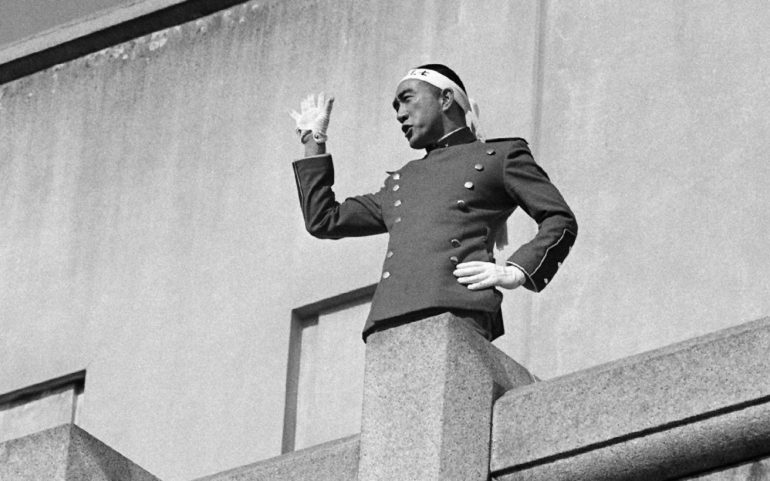There are people who just wish they had lived a different life than they did. Different. They would like it to be something else even if this something that happened was something they did not like. It did not satisfy them, however. And that, sometimes, is enough for a person to be unhappy.
Success, after all, does not necessarily go hand in hand with happiness. That was exactly what he was Yukio Misima. A successful man, famous but so controversial that his life, action and decisions, turned a brilliant path into a dark path that no one really - even so many years after his death - knows if he walked because he wanted to or because he had to.
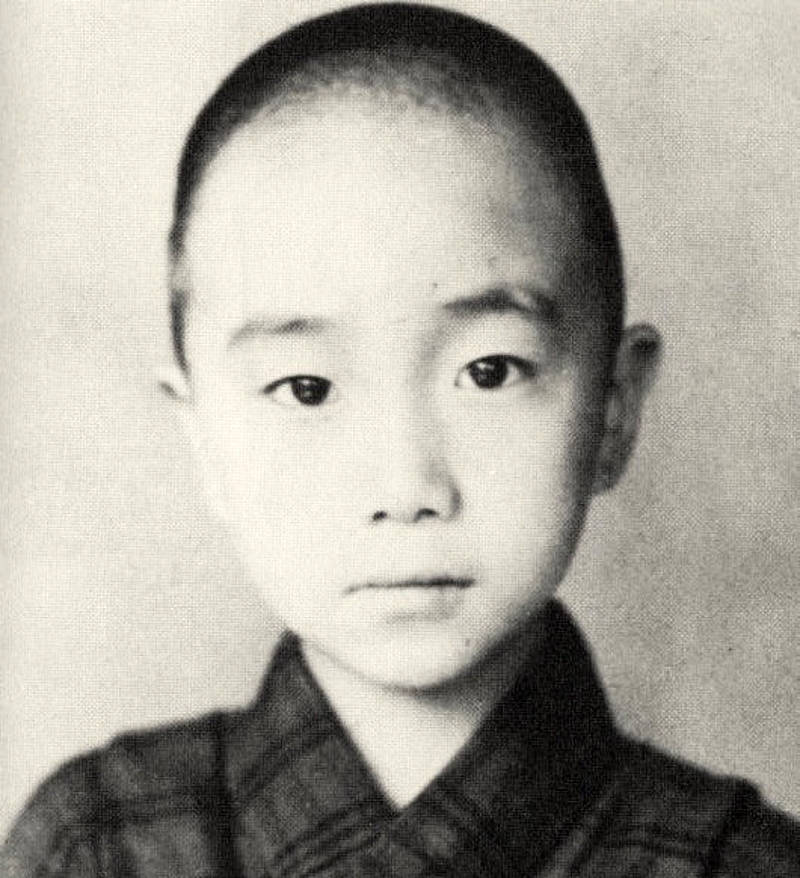
His real name was Kimitake Hiraoka and he was born on January 14, 1925. His parents both came from aristocratic families. His father was a middle-ranking government official.
Family obligations forced the parents to leave little Kimitake to his grandmother in order for her to raise him. Natsuko was a tough woman. A member of a family whose ancestors were all fearless samurai. She had her own "philosophy" on how children should grow up and somehow forbade little Kimitake to go out and play with other children his age or play sports. All he could do was talk to her and read many Western and Japanese literary books.
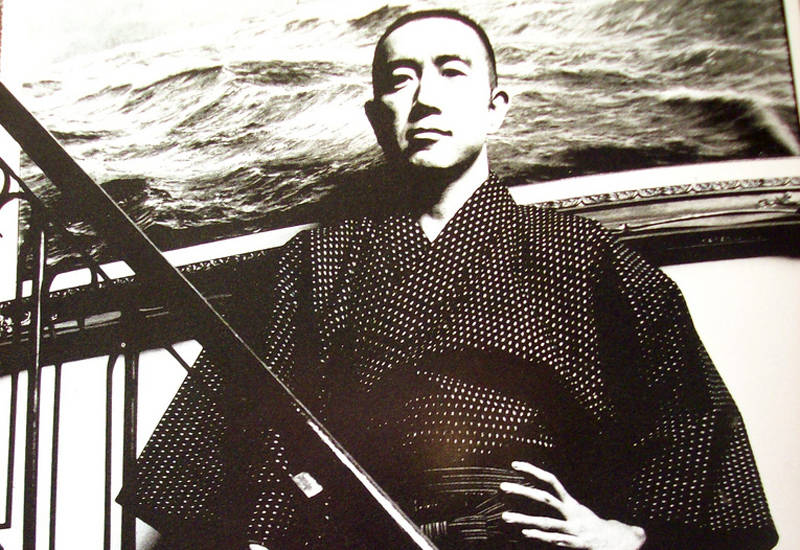
Somehow, Kimitake Hiraoka acquired an appeal in writing and from an early age began to "scam" his own poems. Then, however, came the second blow. His father, seeing that his son was not receiving the right upbringing, took him back to the family home, tore everything he had written, forbade him to read and forced him to exercise and play sports constantly.
Kimitake found himself at a strange crossroads without knowing exactly what he wanted to do since he loved both literature and exercise.
At school he excelled in writing and in 1941 at the age of 16 he wrote a 100-page text entitled "Flowering Forest", which made sense in the literary circles of the country. Then, to protect him, one of his teachers suggested that he adopt a pseudonym to write fearlessly. This is how Yukio Misima was "born".
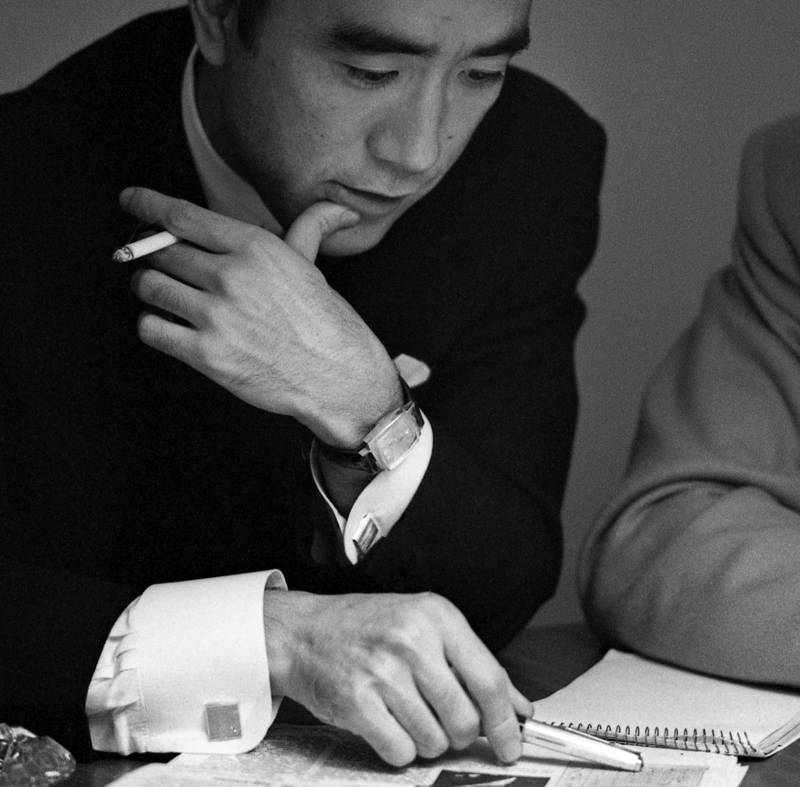
A few years later this strange crossroads we talked about earlier and where Yukio Misima was standing would reappear. Japan had entered World War II and young Missima thought it was time for what he wanted from a young age: A heroic death.
A writer, after all, with Military training and the upbringing of Misima, it was almost lawless to lead to such thoughts. When it came time to serve, however, something happened that he himself could never explain.
He presented himself to the military doctors and lied to them that he had tuberculosis. So they "cut" him!
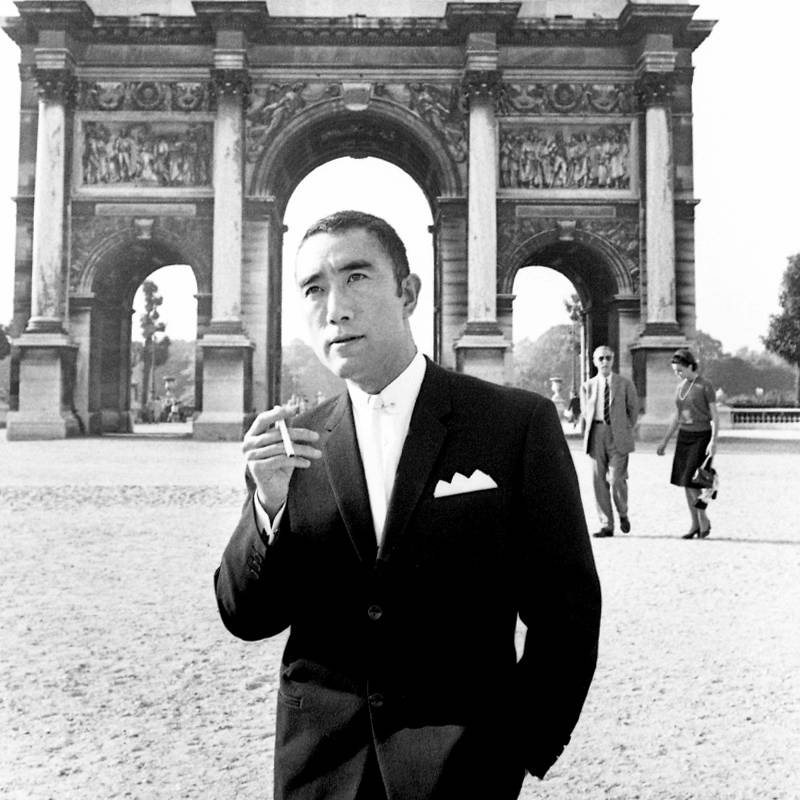
"What I wanted was to die among strangers, without worries, under a cloudless sky. Wasn't the army the ideal solution to my problem? Why did I seem so honest when I lied to the military doctor? Why did I say that I had a fever for six months, that my shoulder hurt, that I was spitting blood? "Why did I run away when I passed the gates of the camp?" He wrote in his second book, "Confessions of a Mask," which is considered by many to be autobiographical.
The point is that his momentary cowardice marked him. He, who from a young age sought a heroic death, at the critical moment turned back.
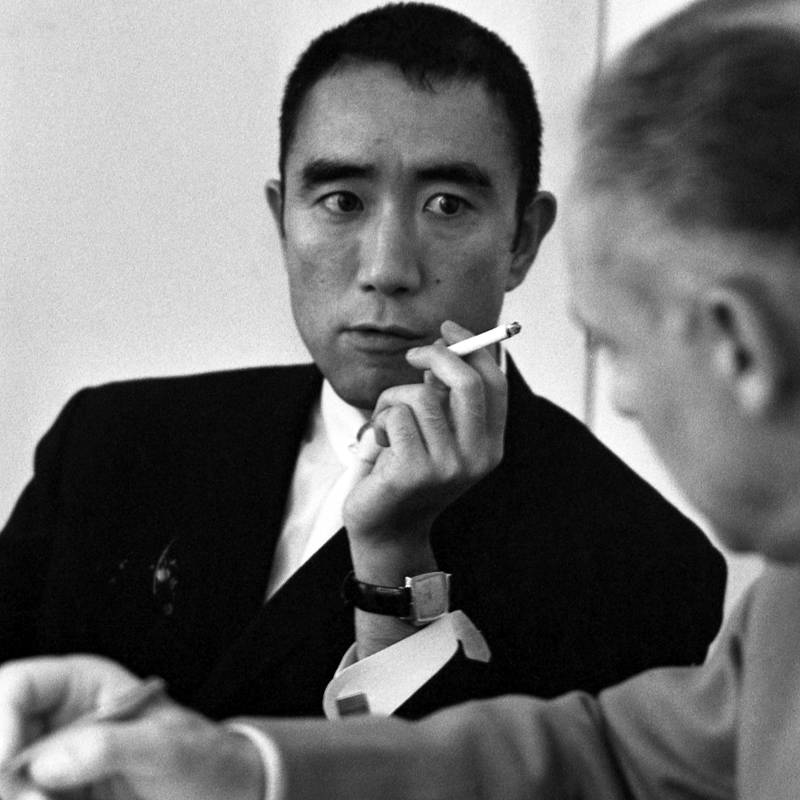
After that incident, Misima devoted himself to writing. He wrote 34 novels, 25 books of short stories, a libretto, 50 plays and a screenplay for a film. At just 24 years old he was a first time candidate for the Nobel Prize in Literature.
Three years later, he traveled to Greece. A journey that marked him. As he said he healed him from hatred for himself and love for loneliness. His book "The Sound of the Waves" was also inspired in Greece.
His contact with the ancient statues in Greece, made him want to get the perfect body. He fell head over heels in gymnastics, trained in karate and kento in which he gained 5 dan!
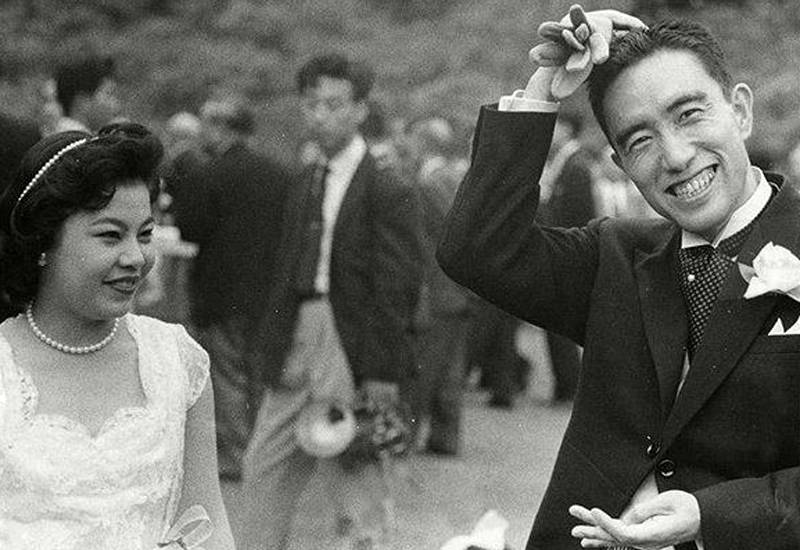
In 1958, Misima married Yoko Sugiyama, with whom he had two children. He never wanted this marriage that came under pressure from his father, who wanted his son to settle down and become the right head of the family.
He signed a prenuptial agreement with his wife, not for assets but because he essentially forced her to leave him personal space and time for writing, while she herself would take second place. She accepted it and stayed with him until his death.
Misima, however, also had a secret love life. He is said to have had sex with actor Akihiro Maruyama, while after Misima's death, writer Giro Fukushima revealed that they had a long-term love affair.
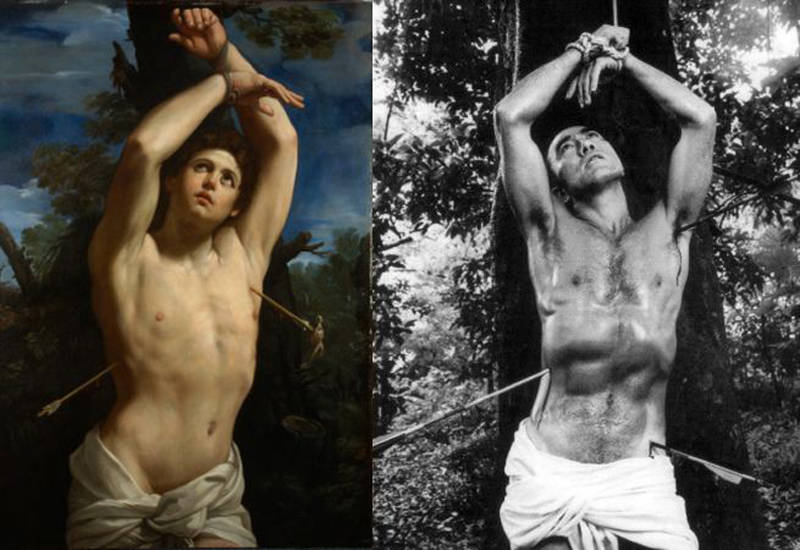
In his book "Confessions of a Mask", Misima wrote that he was sexually aroused for the first time when he saw an image of St. Sebastian being tortured by the painter Guido Reni. He was so impressed by this image that many years later he was photographed in the same pose.
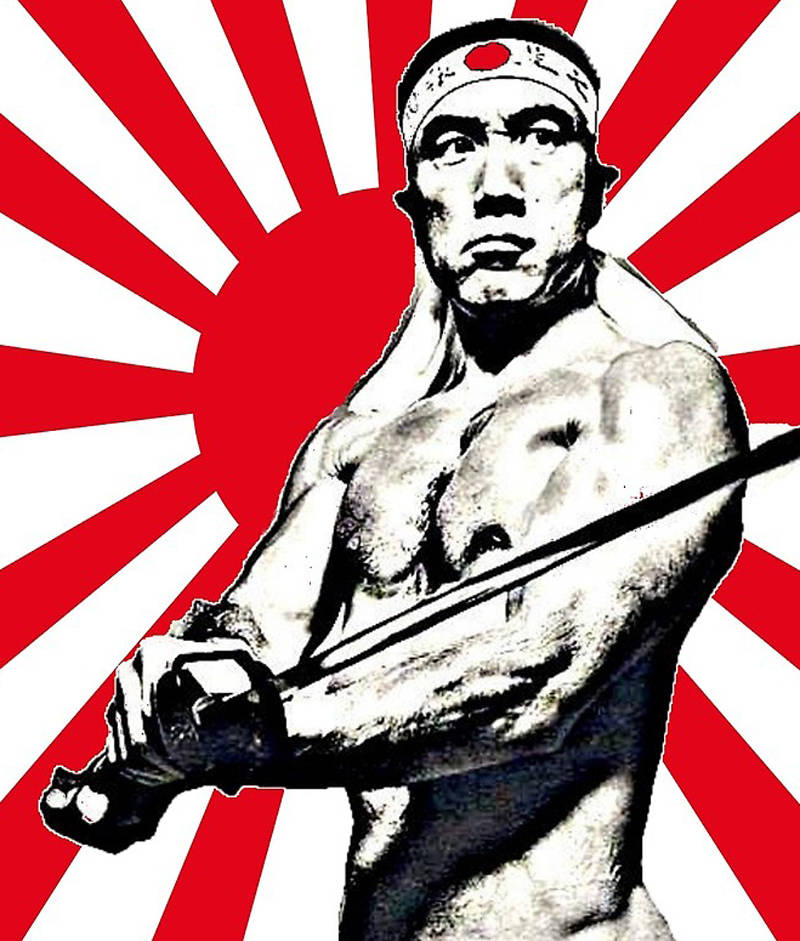
Misima, in terms of his political beliefs, was an extreme nationalist, a fan of the imperial institution. For many, it was his views that prevented him from being awarded the Nobel Prize in Literature despite being nominated three times.
She wanted Japan to acquire nuclear weapons, to abolish the "pro-American", as it said, Constitution of 1947 and to make its institution strong again Emperor who would have to regain his divine status which had been renounced by order of the Americans. His views, in fact, were so extreme that he did not hesitate to build a small army of 80 people. He gave it the name "tatenokai", meaning shield, and he called it an "imperial guard".
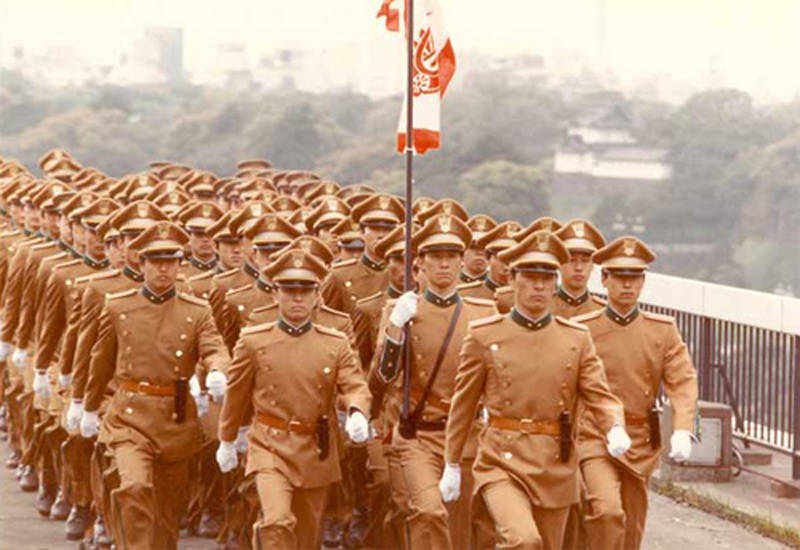
It was more than obvious that Misima was trying to atone for his cowardice years ago but also to find that heroic death he was so desperately seeking. And since she could not find him, she directed him.
On November 25, 1970, after his children went to school, "The Fallen Angel" completed the last book. He left the manuscript on his desk for his publisher to find, and along with four other members of the "tatenokai" went to the Ministry of Defense in Tokyo. There they held the commander of the guard hostage and forced him to line up under his office 800 soldiers.
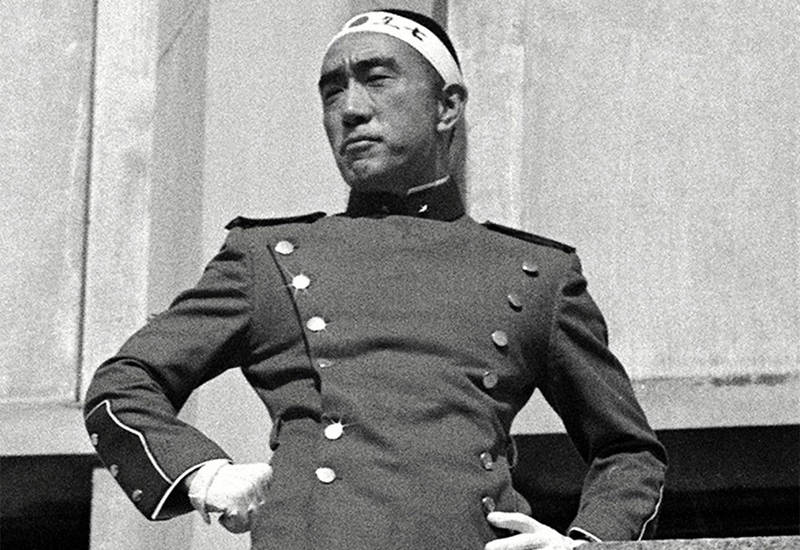
Missima's goal was through a fiery speech of about half an hour to provoke a coup to achieve all that he wanted. This speech, however, lasted only seven minutes. The assembled soldiers, photographers, cameramen and police officers who arrived at the scene, however, mocked and ridiculed him.
He stops his speech, says loudly: "Is it possible to give value to life in a creation where the spirit is dead? Long live the emperor "and enters the office again. His last words were: "I don't think they even pay attention to me…"! Misima then, with the help of his comrades, took his own life doing harakiri, at the age of just 45 years.
